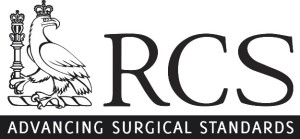 The Royal college of Surgeons requested BAPIO view “To aid our thinking and awareness about how we can eliminate discrimination and achieve full equality, as we develop curricula”. BAPIO response was drafted by EC member Dr M. Hemadri
The Royal college of Surgeons requested BAPIO view “To aid our thinking and awareness about how we can eliminate discrimination and achieve full equality, as we develop curricula”. BAPIO response was drafted by EC member Dr M. Hemadri
BAPIO RESPONSE
What sort of barriers to successful careers within surgery, do your members face?
Barriers
– Lack of mentors, role models, coaches, supporters and ‘old-school’ network
– Selection criteria for entry into training which prevents people with some experience abroad being disadvantaged.
– Differential outcomes in examination results that disadvantages BME-IMG surgeons
– DGH – Teaching Hospital asynchrony where many BME-IMGs are in DGHs resulting in a perception of under-performance.
– Higher rate of referrals to authorities such as GMC by organisations (not patients) resulting in highly stressful careers.
– Poor work force planning resulting in lack of opportunity for training posts causing stagnation and dependency on non-training grade doctors (Staff Grade, Associate Specialists, Specialty Doctors)
– Dependency on IMGs and older doctors (over the age of 50) at the middle grade levels identified as a risk by the GMC, resulting in SAS/SD grades being over utilised, tired, exhausted preventing success in their careers.
How are your members discriminated against, if at all, when they undertake a surgical career?
A look at the JCST committee gives the impression that it neither represents the population, nor the NHS or surgical doctors’ profile, nor the constituent profiles of the trainees, it seems predominantly Caucasian sounding and male. Even before BME-IMGs start their career, they are subliminally intimidated by the composition of possibly unrepresentative committee members. This does not inspire confidence in our members in terms of equality and diversity; they begin to feel unwanted from the beginning. For instance, many of the TIG’s members are almost all, if not all Caucasian sounding (some invited and trainee members are occasionally non-Caucasian) – this does not inspire confidence amongst our members.
We feel that BME doctors and especially IMG doctors are not allocated or less often allocated or allocated at the wrong time/stage in their careers to centres perceived as providing the best training. This generates a fundamental insurmountable discriminatory obstacle that becomes extremely difficult to overcome for the rest of the career.
We feel that the differential results given to the candidates taking the exit examinations after satisfying similar entry criteria, similar training requirements could have elements of discrimination. While it is easy to say that there is no discrimination or the issue is complex and needs more research, it is essential to minimise bias that could lead to adverse results on doctors taking surgical examinations. It is also an easy but uninspiring logic to state that such differences are found in all medical post-graduate examinations; does not justify the issue and surgical colleges could take the lead in reducing bias.
How can we help your members to feel included and supported when making curricula changes?
Information on why, how and what specific measures have been made to feel included and supported and their impact.
Consulting BME-IMG surgeons and acting upon their responses rather than including them in the overall responses and not acting upon it on the basis of majoritarianism.
By including BME-IMG members as a part of the structure and process of curriculum changes (not the ‘you tell us, we will do it’ attitude but ‘let us do it together’ attitude)
What are the sorts of things that you think we should consider and implement for the benefit of your members when we make any changes to the curricula?
We suggest that as an initial step that the JCST and the Royal Colleges voluntarily adopt the WRES mechanism in their organisational working; equally importantly to recognise and embrace the WRES principles whole heartedly. At the operational level, if the WRES model is followed and it is transparent – our members in particular and BME surgeons in general would have an increased confidence in the structures and processes of the workings of JCST and Royal Colleges.
A specific aim of reduction in the differential rates of success in surgical Royal College examinations will inspire confidence.
People involved in curriculum setting and administering to be pre-tested for implicit bias with persons showing high bias excluded from the process and persons showing moderate biases supported to reduce bias and monitored for improvement. This issue should also be continuously monitored.
Examination material tested for linguistic bias. Objective material tested for linguistic bias and corrected to reduce bias. Subjective material reduced to minimum and weighted down so that results can be weighted more towards passing objective material.
In terms of log book and training credit given to previous experience.
A GENERAL POINT
Often the argument is made that patient safety overrides issues of equality, diversity and opportunity. This is a correct argument. However, the evidence we have is that IMGs have better clinical operational outcomes (US data and Mr V Zamvar of Edinburgh, analysis of cardiac surgeon’s outcomes). Currently there seems to be no evidence that the differential outcomes given to IMGs and BMEs improve patient safety. The patient safety as far as the examination is concerned remains an issue of opinion and not evidence.
BAPIO is working with a number of institutions and Royal Colleges to improve actual or perceived issues of discrimination. We thank you for asking us to respond to your consultation. This is a response to the specific questions asked and is limited by scope. We will be happy to answer further queries and to work with you in the future.

